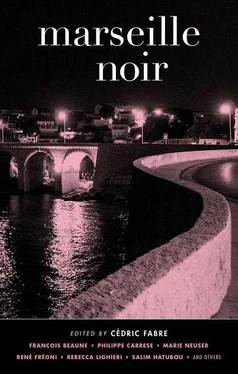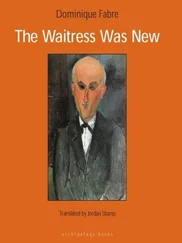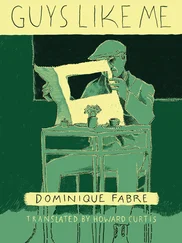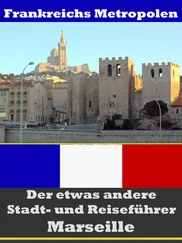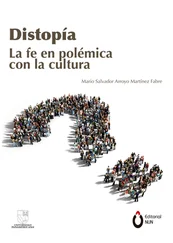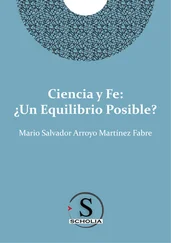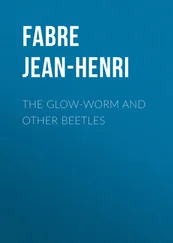Cédric Fabre - Marseille Noir
Здесь есть возможность читать онлайн «Cédric Fabre - Marseille Noir» весь текст электронной книги совершенно бесплатно (целиком полную версию без сокращений). В некоторых случаях можно слушать аудио, скачать через торрент в формате fb2 и присутствует краткое содержание. Год выпуска: 2015, Издательство: akashic books, Жанр: Крутой детектив, на английском языке. Описание произведения, (предисловие) а так же отзывы посетителей доступны на портале библиотеки ЛибКат.
- Название:Marseille Noir
- Автор:
- Издательство:akashic books
- Жанр:
- Год:2015
- ISBN:нет данных
- Рейтинг книги:5 / 5. Голосов: 1
-
Избранное:Добавить в избранное
- Отзывы:
-
Ваша оценка:
- 100
- 1
- 2
- 3
- 4
- 5
Marseille Noir: краткое содержание, описание и аннотация
Предлагаем к чтению аннотацию, описание, краткое содержание или предисловие (зависит от того, что написал сам автор книги «Marseille Noir»). Если вы не нашли необходимую информацию о книге — напишите в комментариях, мы постараемся отыскать её.
Marseille Noir — читать онлайн бесплатно полную книгу (весь текст) целиком
Ниже представлен текст книги, разбитый по страницам. Система сохранения места последней прочитанной страницы, позволяет с удобством читать онлайн бесплатно книгу «Marseille Noir», без необходимости каждый раз заново искать на чём Вы остановились. Поставьте закладку, и сможете в любой момент перейти на страницу, на которой закончили чтение.
Интервал:
Закладка:
“Ray was great, see, a real champ. Good-looking too. A class act. You should’ve seen his mother Marie-Jeanne, the way she watched him. Like he was a little diamond her husband gave her. A pure fighter, a thoroughbred, with a dark look that put ice in your veins. His opponents were always afraid of him. The first time I saw him fight, it wasn’t far from here, in Huveaune Stadium, down below toward the Prado. At the time, boxing used to draw big crowds. There were thousands of us cheering him on. He should have been a Carpentier or a Cerdan. But then. ” André stopped talking and pulled a Marlboro from his pocket without even taking out the pack. As if he was drawing a gun. “How old are you?”
“Thirteen.”
He nodded like he was taking stock of his dead memories. “Ray was hardly ten years older than you when he died. He could’ve become the strongest, the greatest. But then. boxing. It’s a tough life. It stops without warning. And his life stopped with Chickaoui, an Algerian tough guy they called Damage Man. It didn’t go well. It was fierce, violent, real butchery. As I’m talking to you, I can still hear the punches pounding Ray’s face. And I can still see the sweat and the blood spurting out all the way to the first row.” André raised his eyes, you’d think he was looking for a friend beyond the stands, out in the hills maybe.
“It was in the stadium down on Prado. At that time there were still bulls there. The animal they sacrificed that day was Ray. He fell, he lost his mouthpiece and his belt — Champion of France. But he was still alive when the audience stood up. You can imagine the silence, like right now. Ten thousand people getting up together. Without saying a word.”
No, I couldn’t imagine it. I’d never seen a boxing match, never seen a bullfight.
“The next day when we learned he was dead, a huge crowd from all over Marseille flocked to the hospital. And the day of his funeral, there were four times as many people as there were at the fight. Jesus, did his mother cry. I swear, we were all crying. ”
The seagulls started screaming again. André straightened up. A strained smile crossed his face. More like a scar. I wondered if he’d been a boxer himself. He sure had the physique for the job.
“Anyway. that’s why this section is called Ray Grassi. It’s in his honor. In honor of the boxer who died that day. ”
He shoved his fists into his pockets and got up. I don’t know if it was the cold or the early hour, but he was clearing his throat as if a cat had slipped into it and was trying to get out.
Every time, we went for a pizza. There was a pizzeria in the stadium. And they knew André there. People called him Dédé and watched him out of the corner of their eyes as if they were afraid of I don’t know what. He would go behind the bar and help himself to peanuts and glasses of pastis as if he were at home. The pizza was pretty good. I’d always order a “Royal.” He would smile at me as we ate and we’d laugh because we realized we both left the black olives at the edge of the plate. And then André would drive me back to Grandma’s.
The second time was just before Christmas; he gave me a present. A blue-and-white Olympique de Marseille scarf. It wasn’t so much a luxury because we were freezing our butts off, even more than the first time. I even think it snowed the next day. It was so cold the gulls stayed nice and cozy in their nests. Me, all I thought about when André was telling me one of his stories again was the pizza. We had climbed up the bleachers facing the stands we sat in the first time. In fact, I was trying to find the row we were in before. I was telling myself that André should be taking me to an actual game. What with the action and all, it would have been a lot warmer. And well-known as he apparently was, we would’ve been treated to the VIP booths. I had asked Grandma if he was the owner of the Olympique de Marseille. She’d shrugged and spat on the ground.
This time, he talked about a little guy with a mustache who could run faster than anyone else in the world. Dédé was tracing big circles around the stadium with his finger, as if he was still seeing a track there.
“And the worst was, he smoked, can you believe it? Yes, Jean Bouin smoked. But that didn’t stop him from beating everybody,” he said, lighting a Marlboro. “I didn’t know him, of course. It was in 1912 that he won the silver at the Olympics. Behind a Finn who beat him at the finish line. But I knew a guy in le Chapitre who’d known his mother well. And especially his stepfather, who was a real bastard. A guy named Galdini, who skimmed money off his back, made him run for the bread and then dropped him as soon as he could screw the mother without Jean bugging him. Oh, sorry. ”
I motioned that it was okay, he could talk, I was young but I knew a thing or two.
“Jean Bouin. He left home at sixteen. About three years older than you. To break all the world records, see.”
I asked André why Jean Bouin had a stepfather and he answered that his real father died when he was one. A little like me. my mom died practically when I was born. And I never even had a stepfather.
“A lot of time, orphans make good,” Dédé said. “It makes you want to fight.”
I wanted to ask what he knew about that, but I’m not a moron. I understood they named our part of the stands Jean Bouin because of his achievements. And I also understood that André wanted to tell me something but couldn’t bring himself to do it.
“So how did he die?”
“In the First World War, at twenty-eight. They said he ran to the front with a French flag under his arm yelling, Vive la France! It looked good in the papers. Actually, he and his buddies were wasted by French artillery fire. Friendly fire, as they say today.”
That time I ordered a tiramisu at the pizzeria. I wondered if we would go through every section in the stadium, but I didn’t ask. I knew grown-ups had their own absurd logic. They gave a lot of importance to a whole bunch of stuff that didn’t have any. Memories. Regrets. And I had the impression that André liked things to be done a certain way. He yelled at the waiter because he was too slow bringing over the spicy oil.
As for me, I didn’t like sports much. Grandma signed me up in a Judo club a few years ago, but I didn’t stick with it. Just a soccer game from time to time on the little square. But even that. I wasn’t good enough and I didn’t really like it that much. I thought of that because I had the feeling André was going to ask about it. But he didn’t. He was a man who talked a lot, but didn’t say much of anything. I said so to Grandma and she answered, “That’s Marseille for you: here, they talk a lot, but they never say what counts.”
The third time, we were at the beginning of the new year. I was going on fourteen. André didn’t open the window but that didn’t stop him from coughing. On the other hand, he didn’t light up a cigarette until we got to the stands. He savored the first puffs of his Marlboro as if they were his last.
That day, he explained to me why we in Marseille hated the Parc des Princes.
“Nothing to do with the Paris-Saint-Germain soccer team, son. Nothing. It goes back to 1927, see, at the time when the most popular sport was bike racing. That’s why this stadium is called Vélodrome — velo’s short for velocipede, you know. People came from all over to see the guys racing on the track. They were stars! In Paris, in the Vel’ d’Hiv, you had the Six Day race. It lasted all night and Paris celebrities flocked to see it — Gabin, Mistinguett, all the stars. You had to see and be seen at the Six Days. ”
“What about the bikers, did they race for six whole days?”
Читать дальшеИнтервал:
Закладка:
Похожие книги на «Marseille Noir»
Представляем Вашему вниманию похожие книги на «Marseille Noir» списком для выбора. Мы отобрали схожую по названию и смыслу литературу в надежде предоставить читателям больше вариантов отыскать новые, интересные, ещё непрочитанные произведения.
Обсуждение, отзывы о книге «Marseille Noir» и просто собственные мнения читателей. Оставьте ваши комментарии, напишите, что Вы думаете о произведении, его смысле или главных героях. Укажите что конкретно понравилось, а что нет, и почему Вы так считаете.
